Business Trips
An Autobiography
Early Ventures
“Traveling leaves you speechless then turns you into a storyteller” --Ibn Battuta”
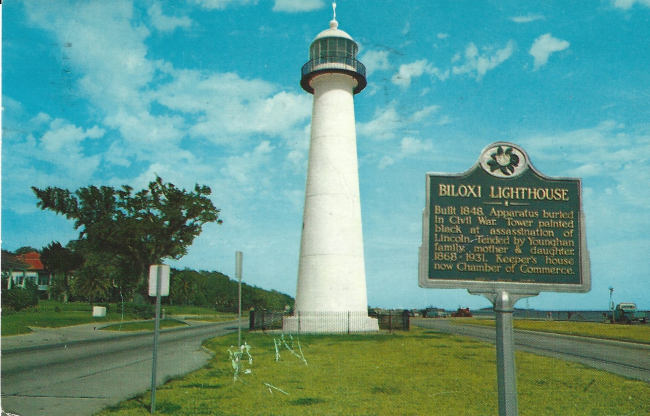 At twenty, I enlisted in the U.S. Air Force, and with that decision began a lifetime of travel. Not just the kind with postcards and tour guides, but the kind stitched together by orders, planes, trains, and the occasional Greyhound bus.
At twenty, I enlisted in the U.S. Air Force, and with that decision began a lifetime of travel. Not just the kind with postcards and tour guides, but the kind stitched together by orders, planes, trains, and the occasional Greyhound bus.
In August 1961, I boarded a plane from Cincinnati, Ohio, bound for Lackland Air Force Base in Texas. It was my first flight, and the beginning of a new chapter. Basic training was intense—marches, drills, and the kind of discipline that reshapes a young man. But once those six weeks were behind me, I traded the roar of airplane engines for the hum of a Greyhound bus headed to Keesler AFB in Biloxi, Mississippi.
Biloxi had its own rhythm, but one weekend we chased something louder: Mardi Gras in New Orleans. The city was electric—floats parading day and night, music spilling from every doorway. I learned that Bourbon wasn’t just a drink—it was the most famous street in the French Quarter. And Mardi Gras 1962 marked the first and last time I ever drank Old Grand Dad bourbon. By nightfall, we were too tired—and too tipsy—to return to Biloxi.
Hotels were packed, but Frank Lupul, a fast-talking New Yorker with a palindromic last name and mink-farming parents, had a plan. He strolled into the Jung Hotel, claimed to be a stranded airline pilot, and secured us a room. I admired his nerve. It worked. Five airmaen packed into the room for the night.
Another weekend, four of us drove to Mobile, Alabama, chasing nightlife. Every club was “members only,” and we didn’t know the trick—pay a small fee, get a temporary membership, and stay out until 3 AM. We missed that memo. Instead, we rented a room and called it a bust.
The next morning, over breakfast at a drive-in, a car with four girls pulled up beside us. We asked where to go for fun. They suggested Biloxi. Playing dumb, we asked about the “Army” base there. They corrected us: “It’s an Air Force base, but go there for a good time. It’s the week before payday—all the Airmen will be broke.” In hindsight, they knew exactly who we were, but regardless, they brushed us off with a smile.
After completing my training, I boarded a train from Biloxi to Cincinnati, then continued on to Plattsburgh Air Force Base in northern New York. My stop in Cincinnati was brief, but revealing. The city hadn’t waited for me. My mother was dating. My sister was engaged. My brother was married. Life had shifted in quiet ways while I’d been away.
But I had changed too. I’d seen Mississippi’s sandy beaches, Louisiana’s wild pulse, and Alabama’s quiet resilience. I had crossed state lines and thresholds—learning to navigate not just geography, but independence. Cincinnati had moved on. So had I.
In New York, I met Arlene. We spent weekends driving between her home in Massena and my base in Plattsburgh. Eventually, those drives turned into wedding vows.
When my enlistment ended, the next chapter began with a series of interviews. The journey took me from Binghamton, New York to Lansdale, Pennsylvania. In September 1965, Arlene and I packed up our lives and moved to Lansdale, where I joined American Electronic Labs as an ECM systems technician.
AEL specialized in radar countermeasures and cutting-edge microwave components, the kind of technology that shaped our military's missions.
My first trip abroad wasn’t for leisure. It was a business trip for AEL, and it marked a new kind of journey—one shaped by expertise, not orders. I wasn’t following a command. I was supporting a system. I carried tools, wore a civilian rank, and traveled as a specialist.
It was the beginning of a career built on precision, problem-solving, and the quiet pride of knowing that my work—though behind the scenes—helped protect those still in uniform.
Italy
“I was learning Italian culture, one fruit at a time”
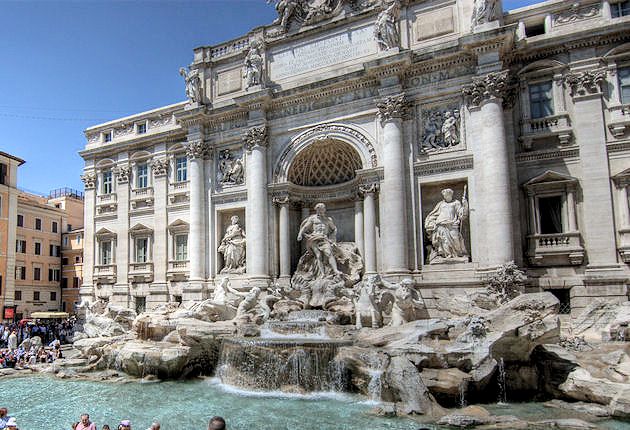 My first trip abroad came in 1966, courtesy of American Electronic Labs. AEL had secured government contracts to develop electronic countermeasures systems, and NATO was hosting a conference to showcase the latest in electronic warfare. The U.S. Army chose to present our compact ECM system—mounted on Jeeps and powered by a jet engine generator. It was sleek, compact, and mobile enough to impress.
My first trip abroad came in 1966, courtesy of American Electronic Labs. AEL had secured government contracts to develop electronic countermeasures systems, and NATO was hosting a conference to showcase the latest in electronic warfare. The U.S. Army chose to present our compact ECM system—mounted on Jeeps and powered by a jet engine generator. It was sleek, compact, and mobile enough to impress.
As AEL’s lead system technician, I was selected to assist with the demonstration at an Army base in Anzio, Italy. There was no time to wait for a passport by mail—I flew to Washington, D.C., to get one in person, packed my testing equipment, and boarded a flight to Rome.
The system was supposed to arrive in Florence within days. I checked daily at the American Embassy. Days turned into weeks. Weeks into a month. Rome became my waiting room.
I made the most of it. I visited the Colosseum, the Spanish Steps, the Forum, Il Vittoriano, and the Vatican. But my favorite ritual was simpler: buying a fresh loaf of bread from a street vendor and enjoying it with a glass or two of wine—ten cents each—in one of the city’s many cozy wine cellars.
I picked up basic Italian, enough to ask for directions or order food. But understanding the replies? That was another story. I learned quickly how hard it is to navigate without a shared language. One day, tired of restaurant menus, I tried a cafeteria. The food was beautifully displayed, but ordering required paying for your selection and turning in the receipt for the food. However, I couldn’t match the items on the menu board to the dishes behind glass. I left hungry.
When the system finally arrived in Florence, it was transported to Anzio by military personnel. I had to make my own way there. I told the taxi driver “Roma Termini,” but I did not understand his reply. He dropped me at the airport section of the terminal. I needed the train station. The terminal was massive, and I dragged my luggage and test gear from one end to the other.
At the station, I faced 29 tracks and a departure board that didn’t list “Anzio.” I saw trains heading to Naples and guessed one might pass through Anzio. At the ticket booth, I handed over enough Lira. My Italian wasn’t strong enough to undestand why the agent asked for more until I counted my change—he needed coins to give me exact change. We were both frustrated.
Ticket in hand, I wandered the platforms, finding the departing train. Unsure I had the correct train, I asked passengers leaning out of train windows in my best Itaian if this was the train to “Anzio?” Finally someone understood I mispronunced Anzio and replied, “Oh! Ahn-she-o, Ahn-she-o, Si. Si.” I boarded.
I found the smoking car at the rear, lit a cigarette, and relaxed. But panic soon set in—I had no idea how to recognize my stop. I memorized a phrase from my Berlitz handbook to ask the conductor to alert me when we reached Anzio.
I fell asleep before he arrived. When he woke me, I asked my question. He replied, “Due ore.” I knew that meant “two o’clock,” and I was confused. I asked again. He repeated, “Due ore.” I wasn’t sure that he understood a word of my Italian.
Still anxious, I was relieved when two Italian Army officers boarded. I asked if they were going to Ahn-she-o. One spoke English. “Get off when I do,” he said. I nodded, grateful. Sometimes, the best travel guides are strangers with kind eyes and a shared destination.
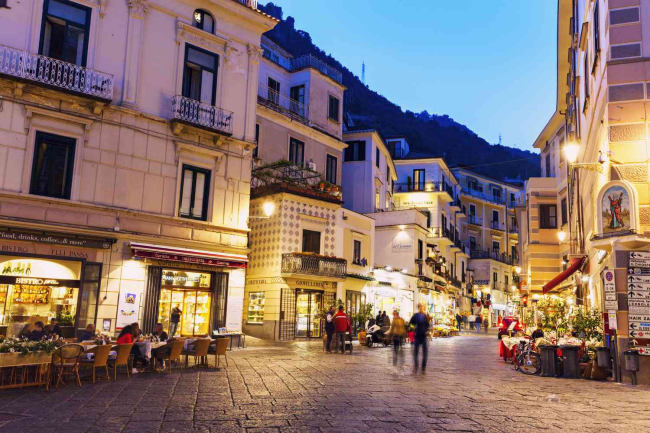 At the Anzio train station, no one was there to greet me. I looked at my watch—two o’clock. Due ore. The conductor told me to get off the train at 2 o'clock! I caught a taxi to the Army base and, after settling into the officers’ quarters, decided to take a stroll along the beach.
At the Anzio train station, no one was there to greet me. I looked at my watch—two o’clock. Due ore. The conductor told me to get off the train at 2 o'clock! I caught a taxi to the Army base and, after settling into the officers’ quarters, decided to take a stroll along the beach.
The shoreline was stunning—quiet, windswept, and empty. I wandered with my camera, snapping photos of the sea and sand. That peace was short-lived. A police officer appeared, seized my arm, and dragged me toward a sign: "No Photographica." He tore the film from my camera and let me go with a stern reprimand. Photography had been prohibited on The Beaches of Anzio since World War II. History has long shadows.
Back at the base, I dined in the officers’ mess hall, where I quickly learned that dessert was a cultural minefield. Apples and bananas were eaten with a knife and fork. I embarrassed myself by biting an apple and eating a banana like a monkey. When cherries were served, I hesitated—only to discover that biting them off the stem and spitting out the pits was perfectly acceptable. I was learning Italian culture, one fruit at a time.
A U.S. Army officer was assigned as my attaché. He drove a sleek black Mustang convertible and had an Italian girlfriend. In the evenings, we cruised into town. The Mustang turned heads, especially among the young men out for the night. The streets came alive after sunset—shops reopened, families strolled, women in dresses, men in suits and children in tow, and the fish markets buzzed with the day’s catch. As dusk settled, the markets were hosed down from ceiling to floor, steel gates clanging shut behind them.
When the Jeep and trailer finally arrived—complete with its jet engine generator—an immediate problem surfaced. The generator required jet fuel, and the only source was the Rome airport, an hour away. I was assigned to accompany a group of soldiers to retrieve it.
We rode in a military truck, the bed covered with a tarp. I sat in the back with a few soldiers, my view limited to where we’d been. I could tell the driver took dirt roads and even cut through fields to reach Rome. At one point, we stopped for coffee. That’s when I discovered Italian coffee culture. No Starbucks. No venti lattes. Just tiny cups—shot glass size—filled with what I now know as espresso. The soldiers warned me, but I was a coffee enthusiast. I took a sip and smiled. It was strong, bold, and perfect.
The demonstration at the base went smoothly. Our ECM system performed as expected. But my attaché, ever the showman, thought it would be amusing to grill a hot dog or roast a marshmallow in the jet blast of our generator. The plan fizzled when I could only find large sausages. And try explaining a marshmallow to someone who’s never seen one. It’s harder than you’d think.
After the demonstration in Anzio wrapped up—jet fuel lesson learned, and marshmallows left untranslatable—I packed up my equipment and prepared to return home. The journey back felt quieter. I wasn’t just bringing home tools and notes; I was carrying something harder to define.
Rome had tested my patience. Anzio had tested my resourcefulness. And Italy, in all its beauty and complexity, had taught me that international work wasn’t just about technology—it was about translation. Not just of language, but of expectations, customs, and human connection.
Back in Lansdale, Pennsylvania, the familiar rhythm of American Electronic Labs resumed. The hum of microwave components, the precision of radar countermeasures, the quiet confidence of engineers who spoke the same technical language. But something had shifted in me.
I’d seen how a simple mispronunciation—Ahn-she-o—could derail a plan. How a banana could become a lesson in etiquette. How a loaf of bread and a ten-cent glass of wine could feel like communion. I’d learned that international work required more than expertise. It required humility.
From that point on, I approached every travel assignment with a different mindset. I packed my suitcase, yes—but I also packed patience, curiosity, and a willingness to laugh at my own mistakes. I understood that being the “expert” didn’t mean being the loudest voice in the room. Sometimes, it meant listening harder, asking twice, and learning how to say “thank you” in a different language.
That first trip abroad didn’t just expand my passport—it expanded my perspective. And it laid the groundwork for a career that would take me across borders, through cultures, and into conversations I never could have imagined back in Cincinnati.
Arizona
“Business travel showed me the world through the lens of purpose”
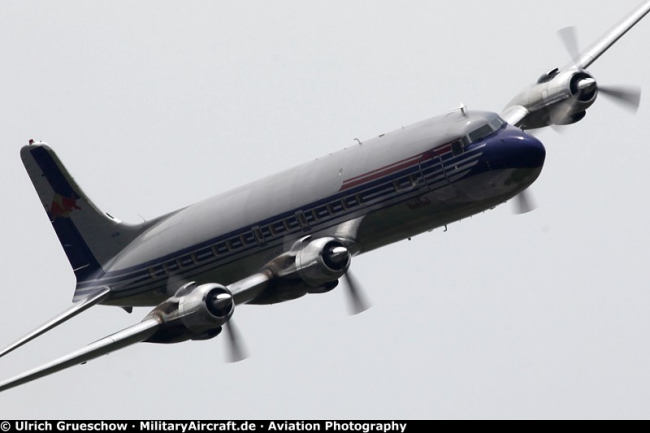 The journey to Anzio was just the beginning. After the NATO demonstration, AEL secured a new Army contract to install their advanced ECM “Jeep systems” aboard two aircraft—five systems per plane. The mission: disrupt Vietnamese CW communications.
The journey to Anzio was just the beginning. After the NATO demonstration, AEL secured a new Army contract to install their advanced ECM “Jeep systems” aboard two aircraft—five systems per plane. The mission: disrupt Vietnamese CW communications.
Installations took place in San Diego, California. Testing and training followed in Mesa, Arizona, near the Boeing facility. I made multiple trips to San Diego to evaluate the installations and several more to Phoenix for testing and training. Numerous issues emerged during the training operations. Aside from the operators experiencing motion sickness, the transmitters were shutting down when the airplanes banked to the left.
The motion sickness was a serious setback but the Army hoped it could be resolved through further training. But the Boeing engineers blamed faulty heat sensors for the transmitter's shut down during sharp turns to the left. I wasn’t convinced.
The five ECM systems, particularly the transmitters, produced considerable heat. Boeing had designed a fan-driven exhaust system to dissipate the heat. My evaluation revealed that the transmitters were shutting down because they were in fact overheating.
After digging deeper, the enggineers discovered the truth: the fan-driven exhaust system worked fine—until the plane banked left. That maneuver created a vacuum outside the exhaust, preventing the heat from escaping. The transmitters were overheating.
Fortunately, the transmitter sensors had operated correctly, otherwise, the transmitters could have been irreparably damaged. Boeing needed to redesign their exhaust system, but they were able to make the system operational and secure approval from the Army on a timely basis.
Boeing redesigned the exhaust system. We got all systems operational. The deadline was met. The Army approved.
The Army offered me any salary I wanted—tax-free—to accompany the planes to Vietnam. I asked for triple my pay. “Money is no object,” they said. I’d hold a civilian GS-13 rank, equivalent to Lieutenant Colonel, overseeing maintenance and training.
But my wife had a diffetent opinion, threatening to leave if I accepted the job. In the end, she left anyway.
On one Phoenix trip, the rental company handed me a gleaming yellow 1967 Plymouth Fury convertible. It turned heads, even if the black leather interior did bake in the desert sun.
One evening, we drove to Nogales, Arizona, and crossed into Mexico by cab. In the shopping district, young boys approached us with cigar boxes full of photos—“my sister,” they’d say. We weren’t buying, but someone suggested visiting a red-light district. The fare was cheap. The experience wasn’t.
The area was grim. We didn’t even want a beer. The taxi drivers had a system: low fare in, high fare out. We paid the price for our curiosity.
After leaving AEL, my travels ended until I joined JCPenney. In 1972 we moved from Pennsylvania to Ohio and in 1978 we moved back to New Jersey. I no longer traveled except to business meetings in Pittsburgh and New York City.
Over the next twenty-five years, travel took a gentler turn: Rhode Island, Las Vegas, Florida, and an annual escape to Cape May, New Jersey. No meetings. No equipment. Just folding chairs, sunscreen, and the sound of waves. I also experienced my first ocean cruise—and found it boring and uncomfortable. A weekend at sea didn’t move me the way the skies, the rumble of wheels on tracks, and the hum of rubber against the road once had.
Unlike business trips, personal vacations danced to a different tune.
And yet, both taught me something. Business travel showed me the world through the lens of purpose. Personal travel reminded me that sometimes, the best stories come from the detours—the elegance of a seaside restaurant, the excitement of wwatching the sunset, and te charm of a bed and breakfastt.
Texas
“Dallas greeted me with wide highways and a skyline that looked like it had something to prove”
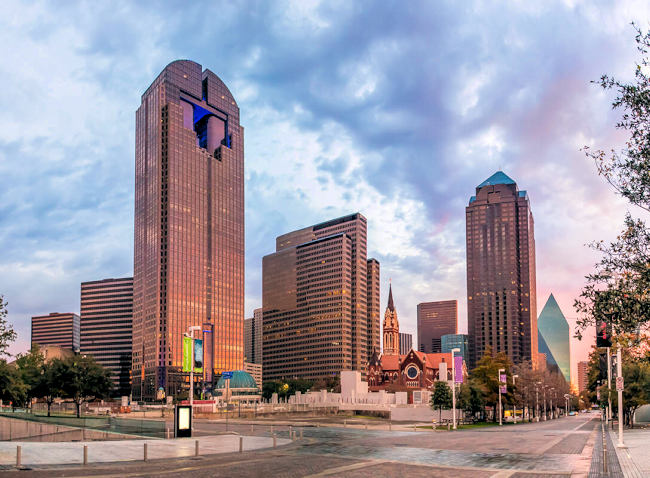 Dallas wasn’t my first rodeo. I’d traveled for years with AEL, where business trips came with First Class seats, expense accounts that didn’t blink, and rental cars that turned heads. I knew the rhythm: fly, check in, present, return. Whether I was in Rome, Mesa, or Pittsburgh, I had a purpose—and the backing to fulfill it.
Dallas wasn’t my first rodeo. I’d traveled for years with AEL, where business trips came with First Class seats, expense accounts that didn’t blink, and rental cars that turned heads. I knew the rhythm: fly, check in, present, return. Whether I was in Rome, Mesa, or Pittsburgh, I had a purpose—and the backing to fulfill it.
But this trip was different.
It had been nearly twenty-five years since I’d traveled for business. My career had transitioned into computer programming, and I’d spent the last three years at BOSS, building state-of-the-art software that had become part of their proprietary packages. The Dallas client was new to me—one I inherited when another employee left.
I packed my suitcase full of expectations and picked up my boss, the owner of the company, in my company car for our early morning flight. Dallas greeted me with wide highways and a skyline that looked like it had something to prove. Sharing a hotel room with my boss felt awkward, but we dove into the work, arriving at the job site before noon and working late into the night.
Somehow, I still found time to explore. Downtown Dallas had more to offer than boots and dust. It had a pulse. Men wore cowboy hats without irony. Women wore heels that could survive a cattle drive. Their accent was charming, and I found myself engaging strangers just to hear them speak. I wandered past The District, admired the Dallas Cowboys stadium in Irving, and discovered a quiet corner that stole my heart: Las Colinas.
Las Colinas was a planned community with Fortune 500 offices, boutiques, and canal boats gliding between destinations. But the highlight was The Mustangs of Las Colinas—a bronze sculpture by Robert Glen, depicting nine wild mustangs galloping through a watercourse. The fountains splashed beneath their hooves, giving life to metal. It was a tribute to the spirit of Texas, and for a moment, I felt part of it.
Leaving Dallas felt like closing a chapter I hadn’t planned to write. The airport was efficient, the flight uneventful, but I carried home the memory of an accent that makes “y’all” feel like a hug and turns “howdy” into a proper greeting, as well as the quiet satisfaction of having gone somewhere—and come back changed, just a little.
But the real change came after.
When I submitted my expenses, my boss refused to reimburse the long-term parking, the meals, and the overtime I’d worked. I wasn’t salaried. I was paid hourly—and at the bottom of the scale for a programmer. The trip had demanded everything I had. The company gave back nothing.
That moment was a turning point. I’d once traveled with purpose, with respect, with support. Now I was expected to give more and settle for less. I left BOSS soon after, seeking fairer compensation and a workplace that valued the journey as much as the destination.
©Copyright 2001 Charles Tyrrell - All rights reserved
No part of this publication may be reproduced, stored, or transmitted in any form without prior permission of the author. Copyright Notice
No part of this publication may be reproduced, stored, or transmitted in any form without prior permission of the author. Copyright Notice